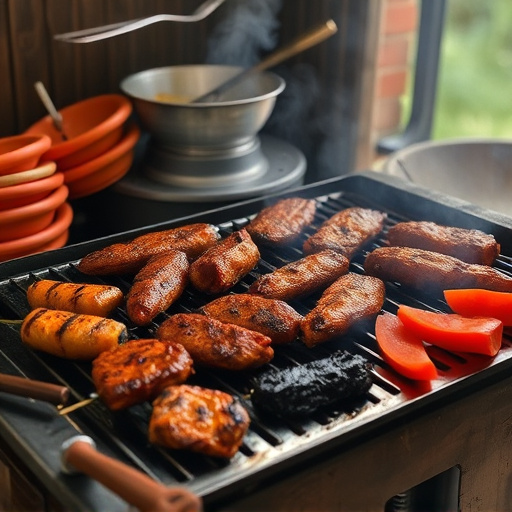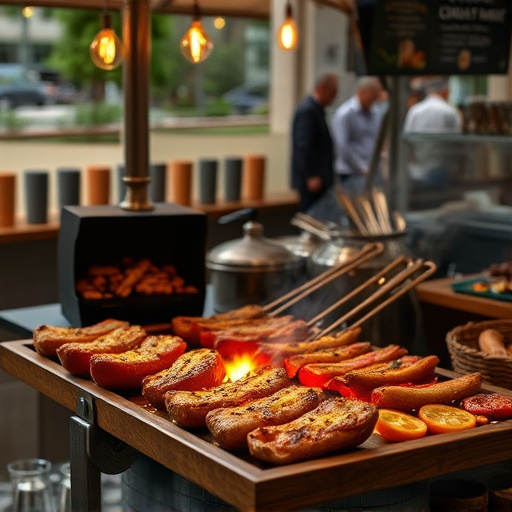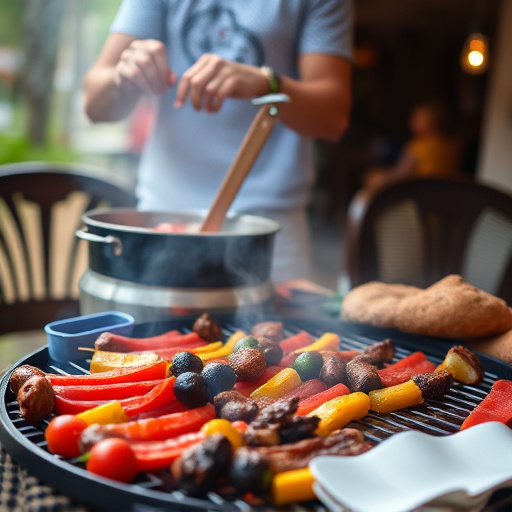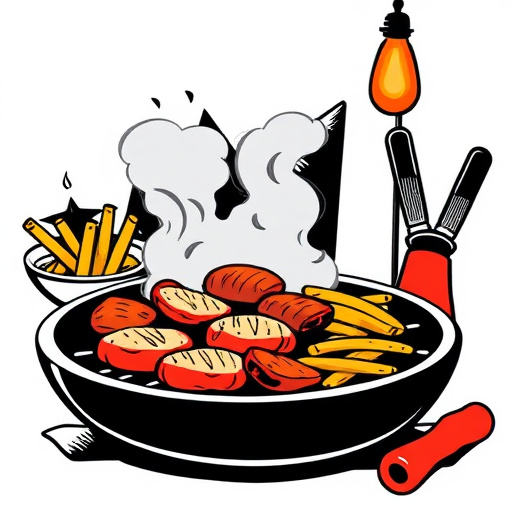Choosing the right lean cuts of beef, chicken, or other proteins is key for a perfect BBQ jerky recipe. Select high-quality meat with minimal fat, marinate it thoroughly, and dry it well for a crispy, flavorful result. Experiment with different meats and spices to create diverse, satisfying BBQ jerky profiles tailored from your preferred recipe.
“Looking to craft your own mouthwatering BBQ jerky at home? This comprehensive step-by-step guide will transform you into a jerky master! From selecting the perfect meat—whether it’s beef, pork, or chicken—to mastering the art of preparation and marinade, we’ll navigate you through each crucial step. Learn about various drying methods, from traditional dehydration to innovative cooking techniques, ensuring your jerky is both delicious and safe. Finally, discover expert tips for storing your creation, guaranteeing a satisfying snack for months.”
- Choosing the Right Meat
- – Types of meat suitable for jerky
- – Considering quality and cuts
- Preparation and Marinade
Choosing the Right Meat

Choosing the right meat is a crucial step in crafting the perfect BBQ jerky recipe. Opt for lean cuts like beef tenderloin, sirloin, or even chicken breast to ensure your jerky turns out tender and not overly greasy. These cuts will help create a satisfying, chewy texture that’s characteristic of great BBQ jerky.
When selecting your meat, consider its marbling – the distribution of fat within the muscle. A little bit of fat adds flavor, but too much can make the final product tough. Look for a balance that suits your taste preferences and ensures the jerky remains palatable after drying. Properly sourced, high-quality meat is key to creating an exceptional BBQ jerky recipe that will have folks craving more.
– Types of meat suitable for jerky

When it comes to crafting a delicious BBQ jerky recipe, the choice of meat is paramount. Lean proteins are ideal for jerky as they contain less fat and moisture, ensuring a crispier final product. Popular options include beef (especially brisket and sirloin), chicken, turkey, and even pork. These meats provide a great base for your BBQ flavors to shine through.
Each type of meat offers unique characteristics. Beef, known for its rich taste, lends itself well to bold BBQ sauces. Chicken provides a milder option, perfect for those who prefer a more subtle smoky flavor. Experimenting with different cuts and types allows you to create varied jerky profiles, catering to diverse palates.
– Considering quality and cuts

When crafting your perfect BBQ jerky, quality and cut are key factors that cannot be overlooked. Start by selecting a lean, high-quality piece of meat, such as beef or venison. Fatty cuts will result in jerky that is more prone to spoilage and less enjoyable to eat. Opt for muscle meats with minimal fat, like round or tenderloin steaks, for the best texture and flavor in your BBQ jerky recipe.
The cut of meat also plays a crucial role. Thinly sliced meat ensures even cooking and allows the flavorful BBQ marinade to penetrate deeply, enhancing each bite. Consider using a food processor or meat slicer to achieve uniform slices between 1/4-inch and 1/8-inch thick. This consistent thickness will guarantee that your jerky cooks evenly, resulting in a delightful, crispy texture throughout.
Preparation and Marinade

In preparation for making your perfect BBQ jerky, the first step is to select high-quality, lean meat. This could be beef, chicken, turkey, or even pork – ensure it’s a cut with minimal fat content. Once you’ve chosen your meat, trim any excess fat and silken membranes, as these can make the final product chewy. Next, prepare your marinade by combining your favorite BBQ sauce, olive oil, salt, pepper, garlic powder, onion powder, and any other spices or herbs that tickle your taste buds. This step is crucial in infusing flavor into your jerky; marinating for at least 4 hours – or even overnight – will ensure the meat soaks up all the deliciousness. After marinating, your meat should be thoroughly dried before moving on to the next stage.
